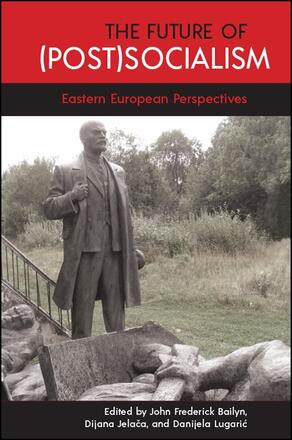
The Future of (Post)Socialism
Eastern European Perspectives
Alternative formats available from:
Explores the current and future trajectories of the paradigm of postsocialism.
Description
If socialism did not end as abruptly as is sometimes perceived, what remnants of it linger today and will continue to linger? Moreover, if postsocialism is an umbrella term for the uncertain times of various transitions that followed in socialism's wake, how might the "post" be rendered complicated by the notion that the unfinished business of socialism continues to influence the trajectory of the future? The Future of (Post)Socialism examines this unfinished business through various disciplinary and transdisciplinary approaches that seek to illuminate the postsocialist future as a cultural and social fact. Drawn from the fields of history, ethnology, anthropology, sociology, economics, political science, education, linguistics, literature, and cultural studies, contributors analyze various cultural forms and practices of the formerly socialist cultural spaces of Eastern Europe. In so doing, they question the teleology of linear transitional narratives and of assumptions about postsocialist linear progress, concluding that things operate more as continued interruptions of a perpetually liminal state rather than as neat endings and new beginnings.
John Frederick Bailyn is Professor of Linguistics at Stony Brook University, State University of New York, and the author of The Syntax of Russian. Dijana Jelača teaches in the Film Department at Brooklyn College and is the author of Dislocated Screen Memory: Narrating Trauma in Post-Yugoslav Cinema. Danijela Lugarić is Assistant Professor of East-Slavic Languages and Literature at the University of Zagreb, Croatia. She is the coeditor (with Jelača and Maša Kolanović) of The Cultural Life of Capitalism in Yugoslavia: (Post)Socialism and Its Other.
Reviews
"This volume uniquely brings together a range of disciplines, beyond anthropology as the conventional discipline for exploring postsocialism, and a range of cases across post-Soviet space. Most importantly, it refreshingly engages with an exciting framework dealing with time and space. Its talk about futures—the futures of socialism and the futures of postsocialism—is a novel aspect that sets it apart." — Johanna Bockman, author of Markets in the Name of Socialism: The Left-Wing Origins of Neoliberalism